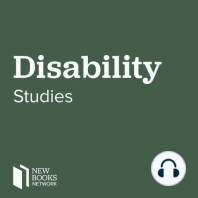59 min listen

Aleksandra Nicole Pfau, "Medieval Communities and the Mad: Narratives of Crime and Mental Illness in Late Medieval France" (Amsterdam UP, 2020)
Aleksandra Nicole Pfau, "Medieval Communities and the Mad: Narratives of Crime and Mental Illness in Late Medieval France" (Amsterdam UP, 2020)
ratings:
Length:
47 minutes
Released:
Sep 11, 2023
Format:
Podcast episode
Description
The concept of madness as a challenge to communities lies at the core of legal sources. Aleksandra Pfau, Medieval Communities and the Mad: Narratives of Crime and Mental Illness in Late Medieval France (Amsterdam University Press, 2020) considers how communal networks, ranging from the locale to the realm, responded to people who were considered mad. The madness of individuals played a role in engaging communities with legal mechanisms and proto-national identity constructs, as petitioners sought the king’s mercy as an alternative to local justice. The resulting narratives about the mentally ill in late medieval France constructed madness as an inability to live according to communal rules. Although such texts defined madness through acts that threatened social bonds, those ties were reaffirmed through the medium of the remission letter. The composers of the letters presented madness as a communal concern, situating the mad within the household, where care could be provided. Those considered mad were usually not expelled but integrated, often through pilgrimage, surveillance, or chains, into their kin and communal relationships.
Learn more about your ad choices. Visit megaphone.fm/adchoices
Learn more about your ad choices. Visit megaphone.fm/adchoices
Released:
Sep 11, 2023
Format:
Podcast episode
Titles in the series (100)
Jeffrey Reznick, “John Galsworthy and the Disabled Soldiers of the Great War” (Manchester UP, 2009): You may not know who John Galsworthy is, but you probably know his work. Who hasn’t seen some production of The Forsyte Saga? Galsworthy was one of the most popular and famous British writers of the early 20th century (the Edwardian Era). by New Books in Disability Studies